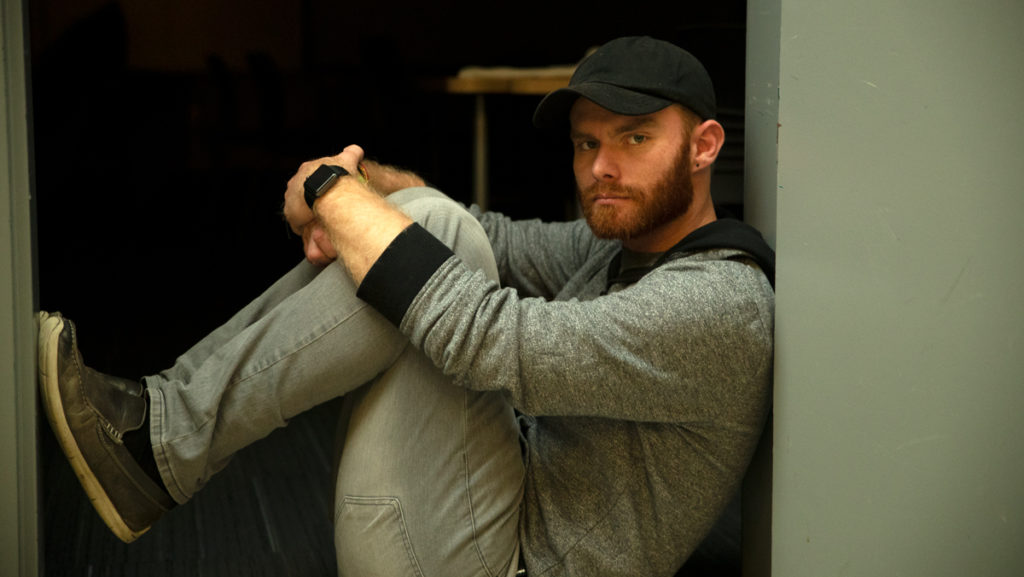I’ve taken six medical leaves of absences from Ithaca College. That’s a self-appointed world record. I kept coming back to school, longing for the day my health wouldn’t interfere with my education, and just recently, I’ve come to the forced outcome that my time in Ithaca has come to a close. I should have graduated this past May with the Class of 2018 with my closest friends and strong support system. I watched my friends walk in cap and gown, glowing after reaching a remarkable milestone and full of anticipation for what their future careers would hold. I was excited for them, but full of trepidation because my future was cemented in fear, uncertainty, and lack of confidence.
My own particular series of mental health challenges have ravaged any sense of normalcy for my college experience. I would have loved to have a simple balance of academics, social life, fitness, and spiritual fulfillment. Yet stability is the literal opposite of what my undergraduate career has been, and I pray that now I’ll be able to get a job even without that precious degree. I had hoped that I would graduate, but I shouldn’t have been blindly optimistic with my tumultuous medical history.
It all started in my senior year of high school. I experienced depression as well as hypomania, and it was difficult to achieve mood stability. People often suggested the old cliche that there is light at the end of the tunnel and suggested I would be better once I changed my environment and had a fresh start in college. When my health didn’t improve after dozens of attempted medication combinations, intensive therapy, and time at Johns Hopkins Hospital; I was extremely discouraged. I did a lot of crying out to God, and I wasn’t even sure I believed in Him anymore. I had lost hope. I was debilitated by fear that I’d lose my scholarship, would never be able to have a collegiate career, and that all my dreams would be shattered.
When I struggled to discover hope for myself, Ithaca College continued to encourage me. The Park Scholar’s office and the deans at the Park School were understanding and supportive. The Park Foundation through my scholarship director communicated loud and clear: We chose you, we still want you, we believe in you. I took my first medical leave the fall of my freshman year and started my first semester the spring of 2015 after receiving treatment during my time off. The Park Foundation and IC valued my mental health, and they respected me as a human being and did not treat me like a statistic.
That first medical leave was really tough. Watching all of your friends leave for college. Having no social life and being stuck at home. Following social media as everyone either had or virtually pretended to have the time of their lives. Going every day to do transcranial magnetic brain stimulation treatment. Feeling alone, stuck, and discouraged. Thank GOD that was the time I established a relationship with Jesus Christ, which has propelled me with pure hope, reckless love, unshakeable joy, and supreme shalom that has transformed my life in ways I still can’t comprehend. I realized that my purpose is to help others who suffer in similar ways, and in order to work to achieve that, I’d have to stop throwing a pity party, remember that it’s not all about me, and allow my faith to guide me back to Ithaca time and time again to fight the good fight and attempt to make an impact in this community. And even now, I don’t see this recognition to move on and leave IC as quitting but instead, a wise understanding that I keep hitting a dead end with my health and therefore ability to do school.
Ithaca College was rooting for me the whole time. Unlike the vast majority of higher education institutions, Ithaca College’s process for taking medical leaves is simple, achievable, realistic, and in support of the student’s well-being. I am so thankful that I’ve been welcomed back multiple times by my college, the Park School, and by my scholarship program. I’d love to give special shout-outs to Dean Gayeski, Dean Roberts, Dean Gearhart, Nicky Koschmann, Professor Mead Loop, and Sarah Grunberg for their abundance of kindness and encouragement.
Every Ithaca College professor I’ve encountered has been understanding, willing to listen, and open to having an honest, vulnerable relationship with me. Don’t be afraid to reach out to Student Accessibility Services for an academic accommodation plan, CAPS as a therapy/crisis resource, or your professors individually to keep them up to date on how you’re feeling and what you can handle. Transparency is crucial: Email your professors with updates if you’ve made them aware of a situation, if you can’t make a deadline due to mental health concerns, or if you have a personal challenge that will cause you to be absent. Don’t let society force you into being a slave to an imaginary track of degree completion. Do what’s best for you. Put yourself first. Be your own advocate and be thankful you chose a school that will advocate for you like Ithaca College has done for me.














